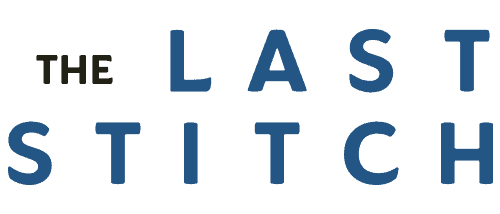Having great tools and notions when sewing jeans is essential for a great result and a friction-free sewing experience. Here are eight of my favourite things that I rely heavily on for my jeans making.

Pliers
Pliers aren’t necessary for making jeans but can be handy when you need to trim or remove bits from metal hardware. Nose pliers (pictured above) are perfect for removing surplus zipper teeth when shortening a zipper. Cutting pliers (pictured below) can be used for shortening nails that are too long when attaching rivets and buttons.
This post contains Amazon affiliate links, meaning that a commission is earned from qualifying purchases.

Get
Irwin Cutting Pliers (Amazon affiliate links)
Use
How to sew a jeans waistband (shows how to shorten a zipper)

Hammer & Rubber Mallet
Having a hammer is super useful when making jeans. Use it for attaching rivets and buttons and hammering down bulky seams to make topstitching easier. A rubber mallet is also a useful tool to have for sewing eans, especially for gently but firmly flattening bulky areas where several bulky seams intersect.

Use
Button and buttonholes jeans tutorial
Get
Rubber Mallet by Tekton (Amazon affiliate links)

Interfacing
Use fusible interfacing to stabilise the waistband and jeans fly area. Best suited for denim making are light to mid-weight non-woven or knit fusibles. There is no need for thick interfacing because denim fabric has enough stability by itself. For waistbands on very stretchy jeans, chose a knit fusible interfacing.

Use
Guide to stretchy fusible interfacing
Tutorial for sewing jeans waistbands
Get

Awls
A sharp tool used for marking, piercing holes for rivets and creating the round opening on keyhole buttonholes. Use the smaller tailor’s awl for markings and the larger awl for piercing holes.

Use
Four ways to use an awl for sewing
Get
Hardware (large) awl (Amazon affiliate links)

Hump Jumper
This is a fantastic little tool that keeps the presser foot horizontal when sewing over bulky layers and edges. It prevents skipped stitches and helps with even feeding, which is an issue when you are sewing thick seams on denim. Also called jean-a-ma-jig, height-compensation tool or bulky seam aid.
Use
Tips for perfect topstitching (video)
Get
Jean-A-Ma-Jig (Amazon affiliate links)
Bernina Height Compensation Tool (has three levels)

Jeans/Extra Strong Thread
Thick durable thread used for topstitching denim Heavy buttonhole thread can also be used for topstitching jeans. The higher the Tex number, the heavier the thread is, with heavy thread for domestic sewing machines usually being in the Tex 60 to 80 (Dtex 600 to 800) range.
I’m a big fan of the Gütermann brand, they both have a Denim thread and an Extra Strong thread that both works great for stitching denim and comes in several different colours. But there are other great brands too, it’s just that I’m most familiar with Gütermann.
Use
8 tips for sewing topstitching
Get

Jeans and Topstitching needles
Jeans/Denim needles
Reinforced needles designed to sew through thick fabrics without breaking. Come in many sizes. A good range to have in the sewing kit is 90/14, 100/16 and 110/18, depending on the denim used.
Get
Organ Jeans Needles (Amazon affiliate links)

Denim Twin-Needle
A double-needle designed to be used when sewing denim and other thick fabrics. Can be used for topstitching and sewing belt loops on a sewing machine.
Schmetz Jeans Twin Needle (Size 4.0/100)

Topstitching Needles
Topstitch needles have an extra-large eye with room for thick threads, making them a good choice for topstitching denim. Use size 90/14 or 100/16 depending on the thickness of the fabric.
My favourite needles are the Schmetz Topstitching needles (Amazon affiliate link), that comes in several sizes. They have an extra-large eye and goes through thick seams so nicely.
Now, this list is of course far from complete, and in my book Sewing Jeans: The Complete Step-By-Step Guide I have an entire chapter dedicated to tools and notions for sewing jeans.
Want to see even more of favourite tools and notions for sewing jeans and learn how to use them? Then check this video out!
I’ve also done a blog post about fantastic sewing tools for $10 or less.

This post contains Amazon affiliate links, meaning that a commission is earned from qualifying purchases.






